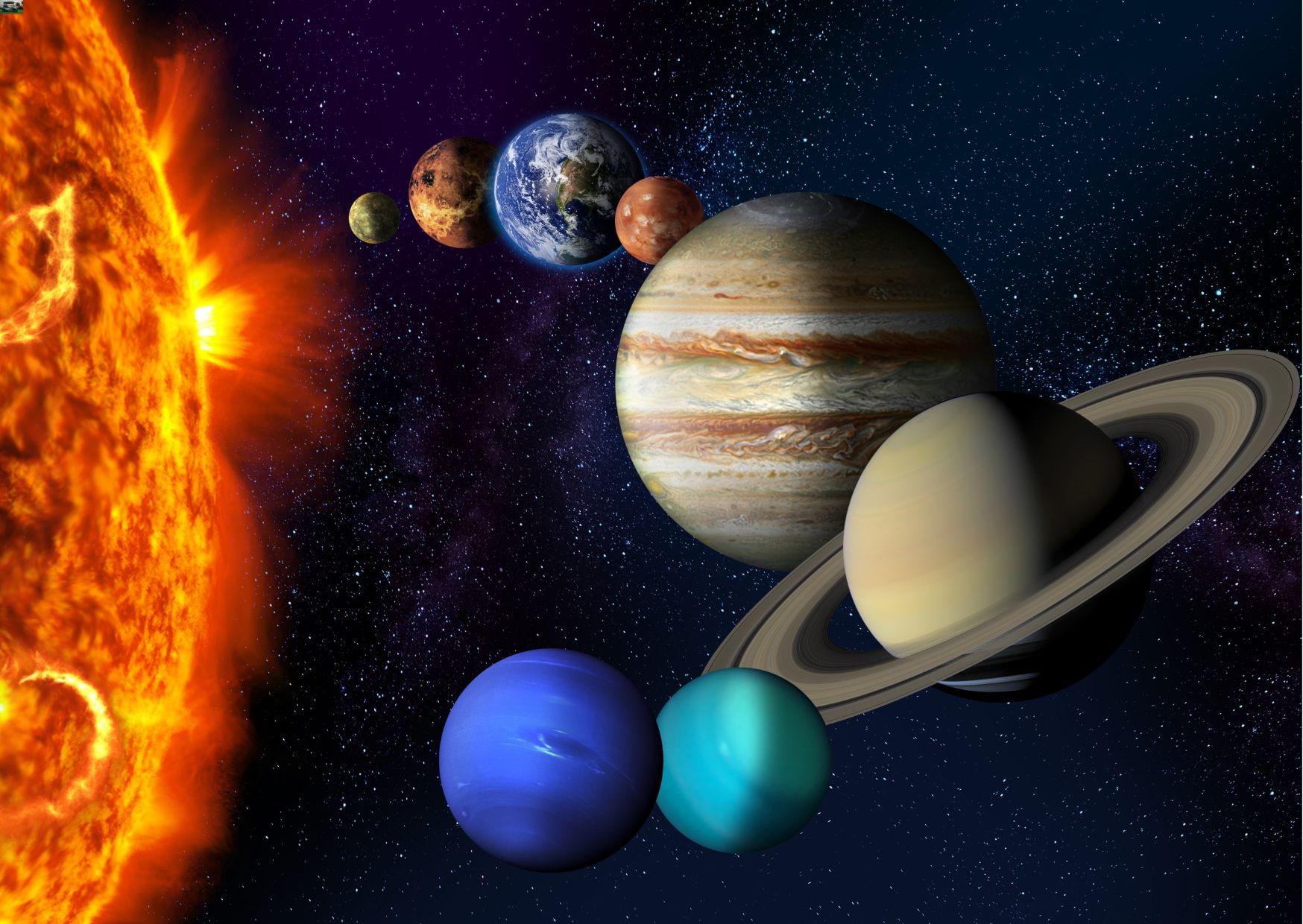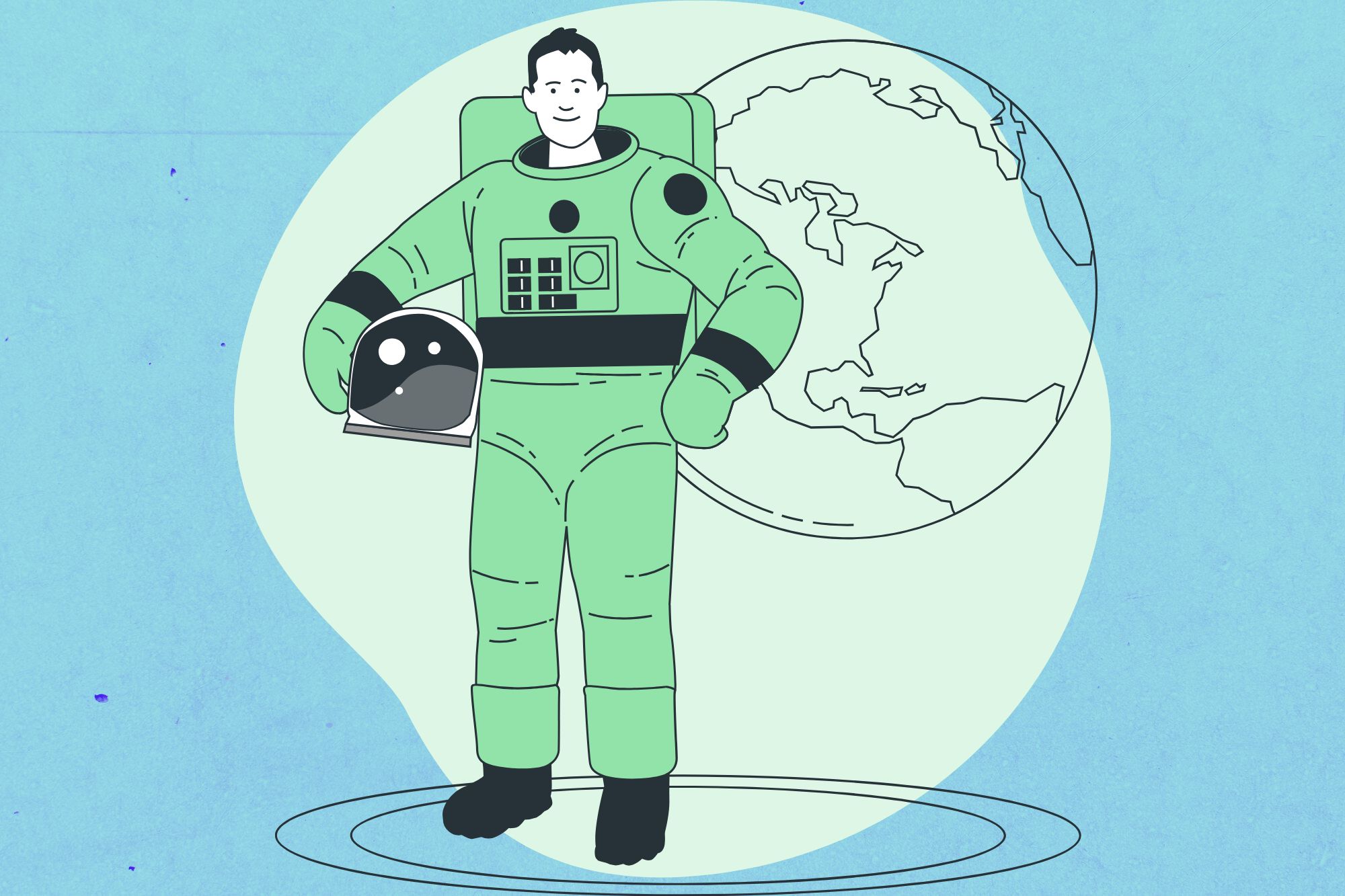To become an astronaut, you get paid to go to Space and help scientists explore and experiment on our environment beyond the reach of the Earth’s atmosphere. They are the people who introduce discoveries to humankind.
What Are the Main Types of Astronauts?
Role and Key Responsibilities
Pilot Astronauts: A pilot astronaut flies and controls the spacecraft. This includes manoeuvring the vehicle, ensuring crew safety, and flying the spacecraft during the entire mission to the destination and back home.
Mission Specialist Astronauts: Mission specialists also participate in scientific experiments, go on spacewalks (or EVAs – extravehicular activities) and operate the various spacecraft systems. They’re experts in areas like biology, physics, engineering or computer science.
Payload Specialist Astronauts: Payload specialists are spacefarers who specialise in some aspect of a scientific experiment or equipment. Due to that fact, payload specialists are often chosen for certain missions based on their expertise and the special requirements of the payload.
International Partner Astronauts: International partner astronauts who come from space agencies outside of the US – such as the European Space Agency (ESA) or the Russian Space Agency (Roscosmos) – also work with NASA and other space agencies on international missions.

What Does an Astronaut Do?
Conducting Scientific Experiments in Space
Speaking about experiments conducted on the ISS, the astronauts perform a range of scientific research to help us understand microgravity’s impact on human physiology, assess materials’ behaviour in space, and explore biological systems.
Operating and Maintaining Spacecraft Systems
To become an astronaut, your roles involve monitoring and maintaining the orbital and relay spacecraft systems, including life support, navigation, communication, etc, and guaranteeing all systems are in perfect condition throughout different space missions.
Performing Spacewalks and Extravehicular Activities (EVAs)
To become an astronaut, you go on spacewalks or extravehicular activities (EVAs) to perform maintenance, install equipment and take scientific measurements outside the spacecraft. It’s a challenging activity that requires months of training and conditioning.
Collaborating with International Space Agencies
The work of astronauts is often tightly aligned back on Earth with international space agencies as they plan and pursue missions. To this end, astronauts take part in shared training regimes, share research discoveries and work to support shared space exploration missions.
Participating in Public Outreach and Education
To become an astronaut, you play roles as public outreach and education ambassadors too, especially to inspire the next generation of innovators and explorers through talks, webcasts, interviews with the media, and engaging with grade-school children, and the broader public.

Average Astronaut Salary
Salary Ranges Based on Experience and Agency
Salaries for astronauts also depend on the amount of time flown, both at the agency and for astronauts who have trained at other agencies. Perhaps unsurprisingly, astronauts working for the United States National Aeronautics and Space Administration (NASA) receive the highest salaries. While new astronauts make $66,000 to $111,000, veteran NASA astronauts can earn between $124,000 and $144,000 per year. European Space Agency (ESA) astronauts can make between €53,000 per year and €86,000 per year.
Comparison of Salaries in Different Space Agencies
Pay structures from different space agencies can differ. Salaries for astronauts vary from Roscosmos to NASA and ESA.
Factors Influencing Astronaut Salaries
Several factors can influence astronaut salaries:
- Experience: Astronauts with more experience makes more $ than less experienced.
-
- To become an astronaut, you can get higher pay if they are more skilful and have experience that brings to the team. Simplicity and higher experience should result in higher pay for the reason that high experience is the most important goal that the is created for.
- The higher somebody is in a division is higher the pay usually. As far as I understand it usually less experienced astronauts make low pay and if they get more experience they need to bring to the team more skilful and experienced astronauts as the planning. So as being higher in the system and division, they should make more pay.
- Rank: Higher-ranking astronauts receive higher pay.
- Agency: The specific space agency and its funding can impact salaries.

Astronaut Skills
Technical Skills
- Skill: Spacecraft control: Workstation management and navigation.
- Experimental design: Operate a range of scientific experiments.
- Cognitive: Maintain mental function in isolation.
- Mood: Monitor and manage moods of self and others.
- Proficiency: Spacecraft operations: Operate a space vehicle and recover from malfunctions.
- Mastery of Engineering and Scientific Principles: A grounded understanding of engineering and scientific principles is vital for executing experiments and keeping spacecraft running.
Soft Skills
- Proficiency in Spacecraft Operation: To become an astronaut, you must be proficient in operating spacecraft systems and handling emergencies.
- Understanding of Engineering and Scientific Principles: A strong understanding of engineering and scientific principles is crucial for conducting experiments and maintaining spacecraft systems.
- Physical Fitness: To become an astronaut, you must be in excellent physical condition to handle the demands of space travel and EVAs.
- Teamwork and Communication: Effective teamwork and communication skills are essential for collaborating with other astronauts and mission control.
- Problem-Solving: To become an astronaut, you must be able to think quickly and solve complex problems in high-pressure situations.
- Adaptability: The ability to adapt to changing conditions and environments is critical for success in space missions.

Astronaut Tips
- Staying Updated with Advancements in Space Technology and Research: Continuous learning is essential for staying current with the latest developments in space technology and research.
- Networking Through Professional Organizations and Space Agencies: Building connections with professionals in the field can provide valuable opportunities for career advancement.
- Gaining Experience in Related Fields: Experience in fields such as aviation, engineering, or science can provide a strong foundation for a career as an astronaut.
- Maintaining Physical and Mental Fitness: Staying physically and mentally fit is crucial for handling the demands of astronaut training and space missions.
Astronaut Requirements
Educational Requirements
- Advanced Degree in Engineering, Physical Science, Biological Science, or Mathematics: Generally, candidates need a master’s degree in a relevant field. Formal Education: Engineering degrees are particularly desirable. Most of the space agencies also consider candidates with a substantial background in physics, chemistry, life sciences or mathematics. 2.3. Aptitude-Based Skills Physical: To become an astronaut, you need to be in excellent physical condition and have the capability to function in any following environment.
- Technical: Regarding technical skills, NASA’s requirements mention the following: ‘Candidates must be experienced in basic sciences (physics, chemistry, biology and materials sciences) and engineering fundamentals, including mathematics, computing, fluid and materials mechanics, structural analysis and electronics.’ Soft: Soft skills required for the job include the ability to work as part of a team, tact and diplomacy, physical and psychological adaptability, emotional maturity, patience, courage and keenness.
- Appropriate Coursework: Physics, engineering, biology, mathematics – or any other science – is a prerequisite for space exploration if one wants to have any hope of understanding what goes on during a space mission.
Certification Requirements
- Professional Certifications: For example, certifications in piloting, scuba diving and emergency medical response can all be helpful.
Experience Requirements
- Professional experience in related fields: Several years of professional experience in aerospace, engineering or in the scientific field is usually required.
- Flight experience for pilots: Pilots should have extensive flight experience, including as test pilots, to qualify to be a pilot astronaut.

How to Become an Astronaut
Completing Relevant Education
- Earning an Advanced Degree: Earn a master’s degree or Ph D in engineering, the physical sciences, the biological sciences or mathematics.
- Specialized Courses and Training Programs: To attend specialised courses and training programmes on space science and technology.
Gaining Practical Experience
- Professional Experience in Related Fields: Acquire some years of professional experience in an aviation, engineering or scientific research setting.
- Piloting Experience for Pilot Astronauts: Gain plenty of stick time, and a bunch of test-piloting experience.
Applying to Space Agencies
With humans potentially heading back into space regularly for work, living and sightseeing, here’s what you need to do to apply to the space agencies that send people to space and back: NASA, ESA, Roscosmos whatever the space agency, you need to apply for astronaut positions during advertised hiring seasons. Make sure you meet all the eligibility requirements and complete all the paperwork.
Undergoing Astronaut Selection Process
- Medical Examinations: Pass rigorous medical examinations to ensure you are in excellent health.
- Psychological Evaluations: Complete psychological evaluations to assess your mental fitness for space missions.
- Technical Skills Assessments: Demonstrate your technical skills through various assessments and simulations.
Completing Astronaut Training
- Basic Astronaut Training: Complete basic training, which includes physical conditioning, technical training, and simulations.
- Specialised for your mission: Get trained for your specific mission, which might include piloting, scientific studies or extravehicular activities (EVAs). This could involve any combination of simulations, naturally occurring microgravity simulators such as those found underwater, and learning to use controls in the spacecraft, conduct spacewalks or other EVAs.
Continuing Professional Development
- Workshops, Seminars, Webinars: Constantly hone your skills with workshops, seminars, and webinars so you’ll be at the forefront of the latest space technologies and research.
- Advanced Training and Certifications: Pursue advanced training and certifications in wilderness survival, space suit training, emergency medical response, and other scuba diving disciplines and technical skills that may be relevant for space missions.
Networking
- Join Professional Organisations: Joining professional organisations such as the Association of Space Explorers (ASE) or the Aerospace Medical Association (ASMA) can further support your career. Professional organisations are great for networking and they provide industry events, resources, and a network of peers.
- Make Space-Related Acquaintances and Connections by Visiting Conferences and Events: Attend space-related events and gatherings where individuals present their research, develop new ventures and gain insights into successful career strategies in the space field. The discussions that take place at events give individual attendees space to learn, network and find like-minded individuals who share their interests and career goals. Once connected, they can exchange ideas and inspiration to expand their opportunities. Such connections will prove valuable and beneficial in building a successful space career for all parties involved.
Are you interested in working as an Astronaut one day? Start by studying the subject, gain experience, get professional certification and attend conferences in the field to stay updated on changing trends. Qualify for the job through continuous learning and networking with fellow professionals. Good Luck!
Frequently Asked Questions (FAQ)
1. Why should you become an Astronaut?
What a thrilling career it must be to become an astronaut! What a chance to explore space do important scientific research, and to further humankind’s aspiration to learn more about the Universe! The job is very honourable, with excellent job security and good pay. And what a chance to fulfil yourself by making significant contributions to science and space research.
2. Is Being an Astronaut a Good Career Choice for You?
If you are fascinated by space exploration, love physically and mentally demanding work, and can commit to rigorous training that is likely to continue throughout your career, then being an astronaut could be a good fit for you. Your chances are also better if you are accomplished technically and scientifically, are a great problem-solver, and can work efficiently in a team. It’s also likely to be a highly rewarding occupation if you enjoy difficult contexts, you’re committed to moving human knowledge forward, and you can spend your days learning new things.
3. Astronaut Salaries
The salaries of astronauts may depend on their experience and the agency that employs them. The base salary for astronauts working for the US space agency NASA (National Aeronautics and Space Administration) can vary, but typically ranges from $66,000 to $144,000 per year, depending on experience. However, the salaries for ESA (European Space Agency) astronauts can range from €53,000 and as much as €86,000 annually. Factors such as the space agency, its budget for funding, astronaut experience, military rank, and place of employment can influence salaries.
4. Which Qualifications Can Help with a Career as an Astronaut?
A master’s degree in engineering, the physical sciences, biological science or mathematics is necessary. (Many space agencies require candidates to have a master’s degree, at minimum.) And while a PhD isn’t required, I wouldn’t rule it out either. To understand the science and engineering behind space missions, you’ll need some coursework under your belt in topics such as physics, engineering, biology and mathematics. If possible, seek out certifications that demonstrate proficiency in flying a plane, scuba diving or emergency medical response.
5. Do I Need to Be an Experienced Pilot to Get Started?
No, prior piloting experience is not necessary, but that’s critical if you want to become a pilot astronaut. If you want to be a mission specialist or a payload specialist, experience in scientific research or engineering can make a bigger difference in getting you in. A background in aviation or any other science- or engineering-based technical fields could enhance your qualifications and provide valuable skills you’ll need to survive the astronaut selection process.
6. Astronaut Career Outlook
Prospects for this career are also good, with space agencies planning all sorts of missions, and private companies building rockets and spacecraft to explore space. The US space agency, NASA, the European Space Agency, ESA, and private companies such as SpaceX and Blue Origin are advertising to send humans into space, with different programmes that applicants can compete for. More astronauts are needed with each project to help explore space.
People who want to become an astronaut can have a future lasting decades, with good job security and high salaries, as well as a chance to be promoted to specialised roles. Also, there is new technology available that can bring further opportunities to space exploration. This means there is a chance to work with international companies and organisations to colonise other planets.
7. Astronaut Hierarchy and Progressing Within the Role
The typical career path for an astronaut includes levels as an astronaut candidate who is an entry-level trainee, and, once the trainee completes training, she becomes a level of an astronaut. The levels of mission commander and senior mission specialist come with extensive training and experience. The most advanced roles of an astronaut as a chief astronaut or a director of space operations also require training to move up from mission commander or senior mission specialist. Learning new skills like being versatile in space operations or flying a vehicle provides more opportunities for one’s career. Obtaining a graduate degree along the way also prepares individuals for high-level positions.
8. Astronaut Exit Options and Opportunities
Astronauts have many exit options and opportunities once their spaceflight careers are over. There is no shortage of human-centred ‘everyday’ jobs for which astronauts’ skills are highly relevant, such as positions in academia, research, consulting or executive leadership positions in aerospace and tech firms. Senior astronauts often move into faculty positions, research or executive positions with aerospace firms after they complete their missions as astronauts. Many choose to earn a PhD or other advanced degree and go on to careers as educators, such as professors, or researchers in space science and technology.


